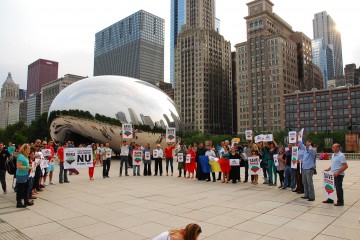
The European Commission is wrong about Romania’s Rosia Montana mining project
For the past seven weeks, Romanians have been leading one of the largest environmental protest movements in the world. Around 200,000 Romanians have taken to the streets in cities across Romania and the world to protest against the government’s recent approval of draft legislation for an open-pit cyanide-based mining project at Rosia Montana. According to Gabriel Resources Ltd., the Canadian company behind the scheme, the plan for the project is to dig up an estimated 314 tonnes of gold squirrelled away in Rosia Montana, using 40 tonnes of cyanide per day.
Despite the protests, the European Commission (EC) did not make a statement until only recently. The Commission’s response was prompted when Commissioner Janez Potocnik received a letter soliciting information on the EC’s intended actions regarding Romania’s moves to accelerate the authorization of the mining project, which would use environmentally dangerous cyanide leaching technology.
But a spokesperson representing the Commission emphasized that it was not concerned with the Rosia Montana project because it so far does not breach any EU environmental regulations. The spokesperson added that, as long as the Canadian company obtains its needed licenses, the project would be fine.
The Commission is wrong.
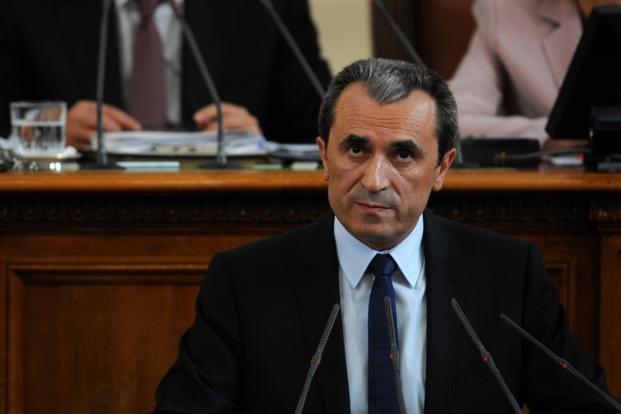
The New Bulgarian Government: A fresh beginning or more of the same?
Bulgaria’s parliament recently approved a new centre-left government, ending a three-month stalemate after the previous centre-right government resigned in February 2013 amidst widespread anti-austerity protests. Despite the seriousness of the task it faces, which includes addressing the protesters’ grievances and ensuring Bulgaria’s economic development, due to a lack of parliamentary majority, the new government is unlikely to bring any significant changes and distance itself from the previous one.
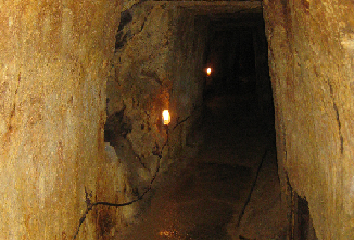
The Hypocrisy of the Romanian Government: Why the Rosia Montana project must be stopped.
Whilst in opposition, current Romanian Prime Minister Victor Ponta and his Social Liberal Union (USL), vehemently protested against the Rosia Montana mining project. Now they are in government, something appears to have changed their minds on the matter. The USL should remember that they are only in power as a result of the discontent of the population with the previous government, on issues that included Rosia Montana, and that they can be removed as well, if they fail in their duty to govern according to their mandate.
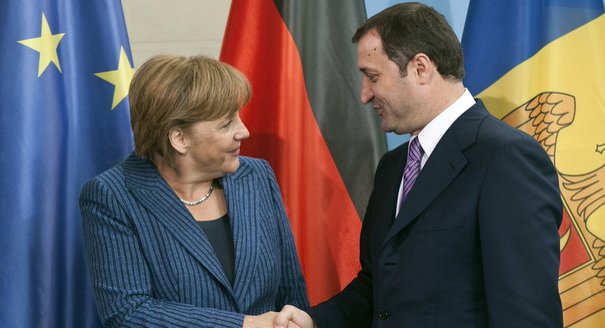
Moldova: At the Crossroads between Russia and the European Union
On August 22, 2012, German Chancellor Angela Merkel conducted an important one-day visit to Moldova to celebrate 20 years of German-Moldovan cooperation. Some of the key topics of discussion during her visit were a potential resolution of the Transnistrian conflict, triggered by the self-proclaimed independence of this Moldovan region in 1990 and suspended by the 1992 ceasefire, as well as Moldova’s integration into the European Union (EU). Indicative of the importance of this visit was the fact that the German Chancellor took part in the visit personally, rather than sending a lower ranking representative to address her Moldovan counterpart. Most commentators who have analyzed Merkel’s visit have played down its importance, arguing it merely represents a strengthened effort to resolve …
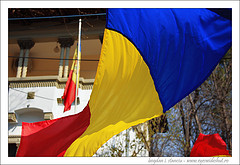
Can the courts save Romania from selling its state owned industry on the cheap?
Shortly after my post on Romania’s paradox of plenty, the recently appointed Romanian Prime Minister came out with another mind-boggling announcement: the government had secretly sold Cupru Min, Romania’s largest copper mine, possessing over 60 percent of the country’s copper resources, to Roman Copper Corp., a Canadian Company, for a mere $200m (US). Quite pleased with the deal, the Prime Minister emphasised that the copper mine had been a black hole for the government, which it finally managed to sell for four times its value. These are misleading overstatements. While the precise value of Cupru Min is unclear, its worth is estimated to be between $6b and $14b (US), whilst the agreed profit sharing deal with Roman Copper only gives …
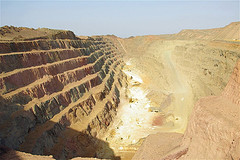
On the line: in Romania, mining brings foreign investment at a cost
Many people instantly associate the ‘resource curse’ with images of African blood diamonds and mining-induced population displacement in Latin America. Few think Western countries are susceptible to such problems. But Romania, and other countries in Eastern Europe, are experiencing their own form of the paradox of plenty. Since the fall of communism Romania remains economically weak. Severely affected by the global economic crisis, its GDP fell more than 7% in 2009, forcing the Romanian government to request a $26 billion IMF emergency assistance package. Following this, the Romanian government adopted drastic austerity measures, resulting in a further 1.3% GDP contraction in 2010. Things are looking better since then; the economy strengthened in 2011. But Romania still lags behind its more …
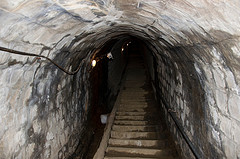
Romania’s Rosia Montana Mining Project: another example of the policy pitfalls of resource extraction
On January 28, a freezing day in Bucharest, hundreds of Romanian citizens protested against a government-approved gold mining project in Rosia Montana by a Canadian corporation, Gabriel Resources Ltd. It was not the first protest against the project: as I mentioned in a previous post, anti-governmental sentiment has swept the country since mid-January, and the row over Rosia Montana is a key issue. But despite the protesters’ warnings about the environmental, cultural and economic consequences of the project, Romanian authorities seem disinterested. The project’s opponents criticise the use of cyanide (a common technique used to leach gold from extracted material) which would have a devastating and irreversible impact on the region’s biodiversity. Moreover, the mine would lead to the destruction of over …
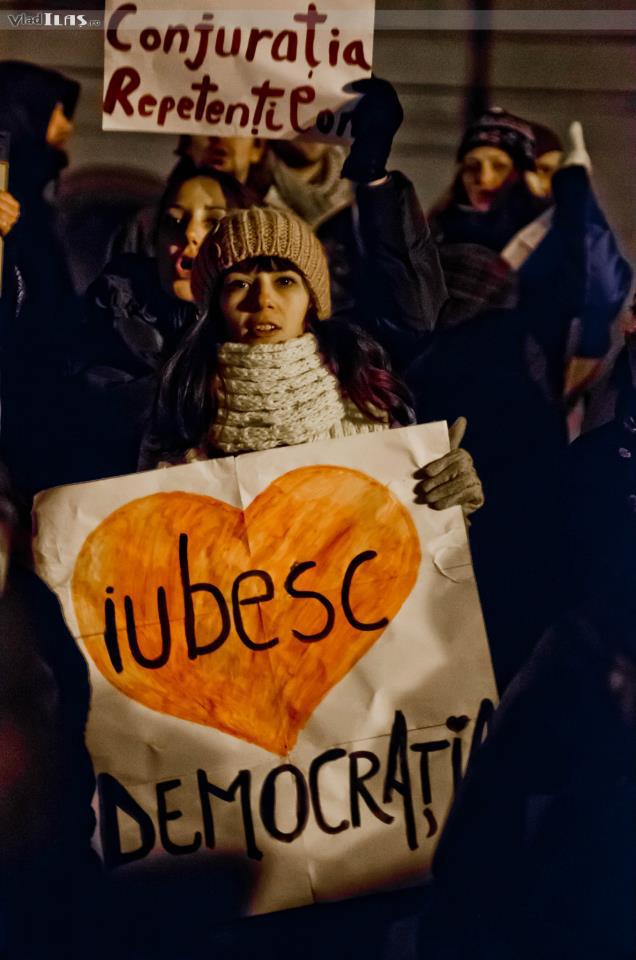
Cyber-statements: Internet protesting and the 2012 Romanian protests
Internet protesting is a concept that has yet to be coined and theoretically conceptualized, even though it exists in practice and has been extensively used during the 2011-2 mass protests that have swept a number of countries in the Arab world in particular and, more recently, Eastern and Southern Europe as well. I will start by, first, providing a starting definition for “internet protesting.” Then, I will apply it to the context of the January-February 2012 Romanian protests. For the purposes of this article, I will argue that “internet protesting” refers to the use of social media, in particular social media websites, such as Facebook and Twitter, to organize and continuously fuel a public manifestation as well as provide a …










